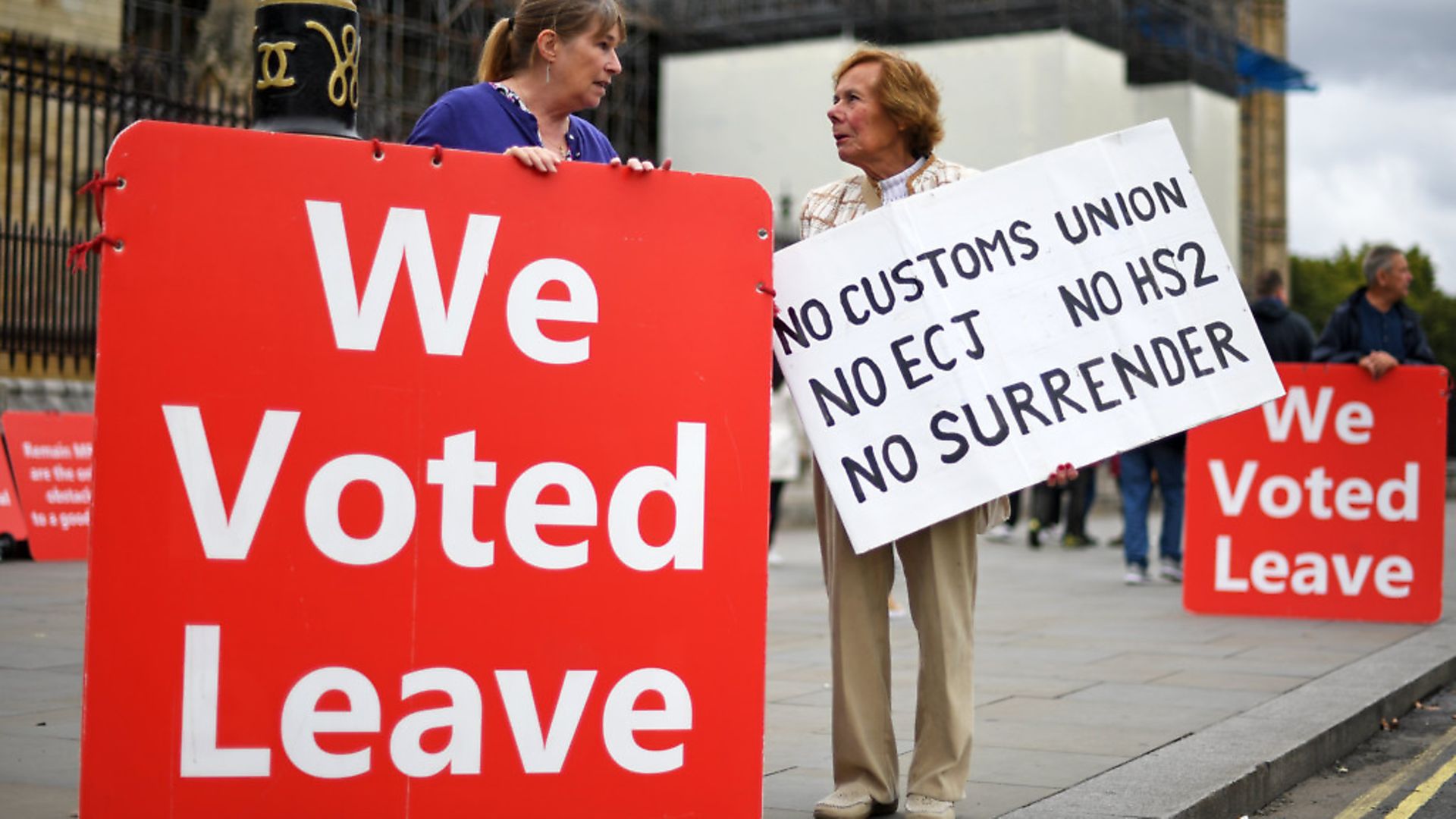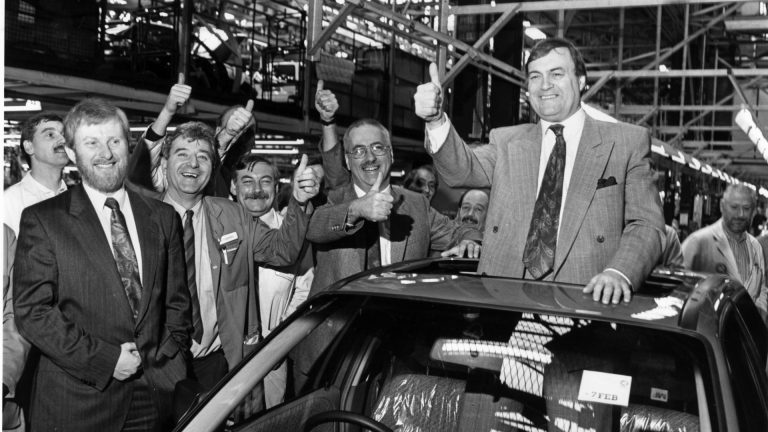
PETER BRADLEY’s exchange with a Brexit voter during a pro-democracy rally has left him believing a second referendum is the only way to preserve our democratic institutions.
MPs are as polarised about Brexit as the people who elected them. So, far from failing the public over the last three years, it could be fairly argued that parliament has perfectly represented it. What’s more, in their inability to implement a decision which few can interpret and none can agree, MPs have reached the only position reasonably available to them, stalemate.
In short, the outcome of the 2016 referendum set MPs a challenge they were bound to fail – and they have succeeded in failing it. Only a second referendum – and the good will so absent from the first – can resolve the impasse and, perhaps, restore a little faith in our politics.
That so many will so furiously disagree simply illustrates, at least in my view, just how radically our understanding of parliamentary democracy has changed since David Cameron forced it through the mangle three long and painful years ago.
At the end of August, I spoke at a rally which had brought 500 people to Shrewsbury’s Market Square to protest against Boris Johnson’s plan to prorogue parliament. They were angry that their government could mount so flagrant an assault on democratic principles they had thought sacrosanct. They were – are – alarmed at what might follow.
At the end of the event, a man at the fringes of the crowd challenged me: “You talk about democracy. We had a vote. The majority decided. That’s democracy.”
But it’s not. For more than 150 years, we have guarded against what JS Mill called the ‘tyranny of the majority’ because, in championing the unmoderated will of many – in this case some 37% of the electorate – it too often encroaches on the rights and interests of many more.
Rather, we have believed that our democratic system’s duty is to build, through rational, civil and public-spirited debate, a national consensus about the general good.
But over the last three years, this pluralist ideal has come under increasing pressure, from the bottom up from large numbers of citizens who have lost patience with compromise, and, from the top down, from politicians who believe that, by harnessing this discontent, they can secure a less encumbered way to govern.
If nowhere else, these very different forces coalesce in the public’s conviction and the politicians’ pretence that decisive action, even if it is ill-conceived, indiscriminate and self-harming, is preferable to deliberation and discretion. They just want to ‘get on with it’ and they are prepared to tolerate – even celebrate – the lack of scruple required in doing so.
Plato warned 2,500 years ago that democracy would always be vulnerable to populists who, by emotive and dishonest argument, seek to manipulate public opinion for their own ends. That weakness led Athens into ruinous wars and the collapse of its democracy. We cannot yet be sure where it might lead us.
But we can see that the 2016 referendum – ill-conceived and unregulated as it was – has proved the ideal medium for the opportunists of our age. In setting emotion against evidence, direct against representative democracy and people against parliament, it has allowed Boris Johnson not only to achieve his personal ambition, but also to undermine the capacity of MPs and judges to check it. This is very dangerous territory.
Shortly after the Shrewsbury rally, BBC News conducted yet another vox pop, this time outside parliament. Against a chorus of “stop the coup”, a Brexit supporter coolly observed, “there is no coup; there are no tanks on the lawn”.
Perhaps, then, we need a new terminology for the events of recent weeks: our parliament has been unlawfully shut down to prevent debate and avoid scrutiny; 21 Conservative MPs have been purged for setting the public interest above that of their party and its current leader; Ministers suggest that they may continue to flout the law and Downing Street sources have questioned the impartiality of our highest court; senior Conservatives are issuing thinly veiled threats of civil unrest if they don’t get their way.
Meanwhile, the prime minister has brazenly denied holding objectionable views we all know he has expressed. Like president Trump, he is clearly confident that, while his critics will be further enraged, his supporters will simply choose from the selection he offers the ‘truth’ which suits them. The former do not matter to him; the latter do. Reputation is a luxury, winning a necessity.
And in this politics-through-the-looking-glass, the most cynical deception of all has led the ‘left behind’ to believe that a privileged clique of Old Etonians suddenly wants nothing more than to bring down the elites, overthrow the establishment and restore to working people a ‘control’ they never had, nor ever will while they are in government.
This storm has been building over many years. In the last decade alone we have lived through a global financial crisis, the MPs’ expenses scandal, the Leveson Inquiry and the Scottish and EU referendum. We have watched aghast as bankers, politicians and journalists have pulled down the pillars of our democratic institutions around them.
So is it really surprising that, with the rise of the internet, citizens have come to believe they can do without the mediation of the mainstream media? Should it come as a shock that the prime minister himself is now suggesting that they can set aside their own parliament – and their courts – should they frustrate the ‘will of the people’ which he now claims to embody?
Perhaps it’s a paradox, but the argument for a second referendum has never been stronger. It is precisely because MPs have been unable to implement the outcome of the first without jeopardising the wider public good, that they need a fresh mandate. This time, however, it must be well-considered, clear and consensual.
But let us not forget that, though prime ministers, politicians and propagandists have played their leading parts, the people also have a responsibility for the mess we’re in – and for getting us out of it.
If we, as citizens, do not wrest back control of our democracy, not so much from the EU as from those who wish to govern us in their own interests and at all costs, we will only have ourselves to blame.
If we really care about that democracy, we simply cannot allow the new unprincipled, win-at-all-costs politics to be normalised. We need to recognise what’s at stake and return to the principles of reason, moderation and tolerance which were once the qualities for which our democracy was admired and imitated.
A second referendum, in which we welcome and participate in open, honest debate and through which we seek an outcome in the broad national interest, presents the opportunity, perhaps the last for a long time, to rise to that challenge.
– Peter Bradley is a former MP for The Wrekin.










